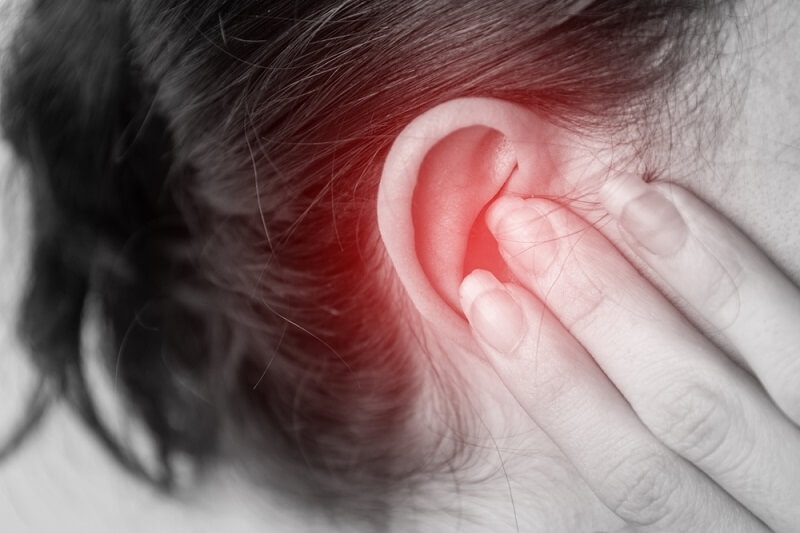Understanding Tinnitus: Causes, Symptoms, and Treatment

Ever heard a faint ringing in your ears when everything around you was silent? You pause for a second, wondering if it’s coming from somewhere else—but it’s not. That persistent sound only you can hear is what doctors call tinnitus. It isn’t an illness itself, but a sign that something deeper might be going on with your hearing or nervous system.
So, what is tinnitus exactly? It’s the perception of sound when no external source exists. People describe it differently, some say it’s a buzz, hiss, or even a high-pitched whistle. Whatever form it takes, one thing’s common: it’s frustrating, distracting, and can sometimes feel endless.
Understanding Tinnitus Symptoms
Tinnitus symptoms vary from person to person. For some, it’s a soft hum that fades into the background. For others, it’s a sharp, steady tone that never seems to stop. The sound can come and go or stay constant. You might hear it in one ear or both.
The most common tinnitus symptoms is, of course, ringing in ears. But tinnitus isn’t always just ringing. It can sound like:
- Clicking or tapping
- Roaring or buzzing
- Humming or chirping
- A pulsing beat in sync with your heartbeat
The intensity often changes with stress, caffeine, or even fatigue. Imagine trying to focus at work while that high-pitched noise hums in the background—irritating, right?
Explore More: COPD Made Clear: Causes, Symptoms, and Treatment Options
Common Tinnitus Causes

Now, you’re probably wondering what causes that constant ringing in ears. The list is surprisingly long. Tinnitus causes can be as simple as wax buildup or as complex as nerve damage.
Here are some common tinnitus causes:
1. Loud Noise Exposure
People often go to concerts, work in loud areas, and listen to music using earphones at full volume, all of which have a negative impact on the sensitive hair cells in the ear. When these cells die, they can’t regenerate, and tinnitus can happen as a result.
2. Ear Infections or Blockages
The minor issue of earwax accumulation or fluid from a cold can significantly affect the hearing and may even trigger tinnitus. Usually, removing the obstruction helps, but sometimes the ringing still remains after the intervention.
3. Aging and Hearing Loss
Hearing loss is a gradual process that accompanies aging. The brain tries to fill in the gaps of the missing sounds by producing phantoms—the ringing in the ears that we perceive as tinnitus
4. Medications
Some medications, especially large doses of aspirin, antibiotics, and antidepressants, can aggravate tinnitus. This phenomenon is referred to as "ototoxicity."
5. Health Conditions
Tinnitus can also be a result of health problems such as hypertension, TMJ disorders, hormonal imbalance or Meniere's disease.
Sometimes, there’s no clear cause at all. That’s the tricky part—it’s not always about what’s happening in the ear. Sometimes, it’s how the brain processes sound.
Living With That Ringing in Ears
Here’s the thing, most people who experience tinnitus at some point in life don’t even realize it’s common. Millions in the U.S. live with that constant ringing in ears, yet many learn to manage it over time.
Some find that background noise, like a fan or soft instrumental music, helps mask the sound. Others rely on meditation or yoga to calm the mental tension that often makes the ringing louder. The connection between mind and ear is real; stress amplifies tinnitus.
You know what? It’s almost like your brain tunes into the sound when you’re anxious, but tunes out when you’re relaxed.
Must Read: Understanding What Is Lupus & Identifying its Early Signs
Tinnitus Treatment Options That Actually Help
Let’s be honest, there’s no magic pill that “cures” tinnitus completely. But there are practical tinnitus treatment options that can make a big difference. The goal is to reduce the intensity of the sound and help your brain focus elsewhere.
1. Hearing Aids
For individuals with hearing impairment, hearing aids are of great help in reducing tinnitus. This is accomplished by amplifying the sounds from the outside world, hence the internal noise becomes less noticeable.
2. Sound Therapy
Tinnitus can be masked with the aid of white noise machines, nature sounds, or even phone applications such as ReSound Relief. Some people even resort to the use of pink noise (softer, lower frequencies) for better results.
3. Cognitive Behavioral Therapy (CBT)
CBT therapy does not extinguish the noise; rather, it modifies the individual’s reaction to it. It is the most effective when tinnitus is a source of worry, stress, or lack of sleep.
4. Lifestyle Adjustments
Change in lifestyle includes reducing the intake of caffeine and alcohol, getting sufficient sleep, and managing stress which do bring great benefits. These minor alterations could help in reducing the number of attacks.
5. Medication and Supplements
No specific tinnitus medication is available, however some doctors prescribe antidepressants or anti-anxiety medications for the most severe cases. Sometimes magnesium and zinc supplements are recommended, but always consult your doctor first.
6. Professional Treatments
The ENT doctors may offer Tinnitus Retraining Therapy (TRT), which pairs counseling with sound therapy to retrain the brain’s perception of tinnitus. It’s not a quick solution, but many people do experience relief over a long time.
When to See a Doctor
If tinnitus comes and goes after a loud night out, you’re probably fine. But the ringing in the ears that never ceases should be taken seriously. You ought to consult a doctor if:
- The noise persists for more than a week
- You feel dizzy or have lost some hearing
- The sound is pulsating in accordance with your heartbeat
- It is causing problems with your concentration, mood, or sleep
A doctor will conduct hearing tests, imaging studies, and other investigations to determine the cause of your tinnitus and suggest the proper treatment plan.
The Emotional Side of Tinnitus
Tinnitus, let us face it, is more than just an ear issue. It has a strong impact on mental health. Many people say that it is like their brain is not allowing them to take a break. The incessant noise can lead to irritation, sleep disorders, and even depression in the long run.
Adjusting to living with tinnitus is often a question of attitude. Mindfulness practices and light background noises can help you to be the master of your attention again. When you stop being scared of the sound, its hold over you becomes a little weaker.
And honestly, if you’ve been struggling silently, don’t hesitate to seek help. There are online tinnitus support communities, counseling options, and clinics that specialize in helping people adapt.
Protecting Your Ears for the Future
Even if your tinnitus isn’t severe, ear protection is a must. Once hearing cells are gone, they’re gone for good. Whether you’re at a concert, using power tools, or gaming with headphones, keep the volume moderate and take listening breaks.
Simple habits like cleaning your ears gently, getting regular checkups, and avoiding loud environments can help you prevent future hearing issues.
It’s one of those things we don’t think about until it’s too late—but your hearing deserves care now.
Also check: Causes, Risks, and Prevention Guide for Psoriatic Arthritis
Final Thoughts on Tinnitus
Living with tinnitus can be frustrating, no question about it. But understanding what it is, why it happens, and how to manage it can make life a lot easier. You’re not alone, and the condition doesn’t define your life.
Keep your ears safe, stay mindful of your triggers, and remember, quiet might feel far away right now, but relief is always possible with the right support.
This content was created by AI
